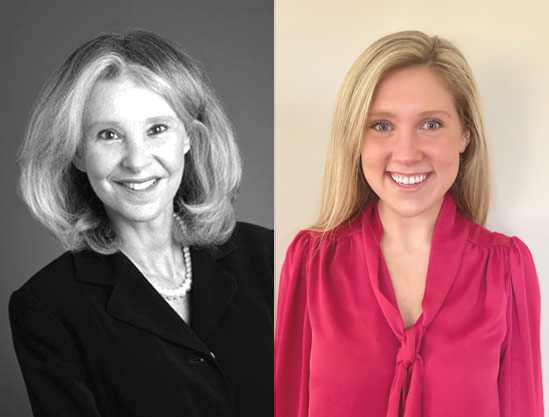Long before COVID-19 forced the shutdown of many early child care centers, early child care in the United States was in crisis, plagued by inadequate funding, lack of professional development for caregivers, and, in some places, ineffective oversight.
In an open letter to the Biden-Harris administration, published as in The Answer Sheet, a column in The Washington Post, Teachers College’s Sharon Lynn Kagan and Caitlin Dermody, Research Assistant at NCCF, offer a way forward.

(Photo: TC Archives)
The Answer Sheet is hosted by columnist Valerie Strauss, who writes, by way of introduction, that the $10 billion for early child care contained in the coronavirus relief package passed by Congress in December will help alleviate the crisis. But much more investment will be needed to keep the nation’s early child care facilities running and moving forward, argue Kagan, Virginia and Leonard Marx Professor of Early Childhood and Family Policy and co-director of the National Center for Children & Families at Teachers College, and Dermody, a research assistant at NCCF. And more than money will be needed to create a truly effective system of early childhood education and care.
Childhood lessons are often worth revisiting. Invoking the nursery rhyme that imparts the rudiments of counting, we suggest that the Biden administration focus on what really counts — improving the well-being of America’s young children.
—Sharon Lynn Kagan and Caitlin Dermody, writing in The Washington Post’s Answer Sheet
Invoking the old nursery rhyme, “One, Two, Buckle My Shoe,” Kagan and Dermody “suggest that the Biden administration focus on improving the well-being of America’s young children by: (1) “buckling” up and taking stock; (2) “opening” the door to new thinking; (3) “picking up” the best strategies from other countries; and (4) “laying straight” actionable strategies. Encouraged by the news that Miguel Cardona, Biden’s pick for Education Secretary, is experienced with and committed to early childhood education and care, Kagan and Dermody call on the new administration to create a national office for children that lays out a vision, an agenda, and a budget and inspires state-level offices to do the same.
Specifically, they write, the new administration should:
- Focus on meeting the standards of quality, equity, sustainability, and efficiency necessary for supporting our children, our economic trajectory, and our society’s wellbeing.
- Build an infrastructure that renders programs effective and meet the “holistic needs” of children by linking health, education, labor, social protection, and family supports, making access convenient for families and continuous for children.
- Adopt the best strategies from other countries: “America doesn’t need to reinvent the wheel. Rather, we need to swallow our pride and/or put aside the notion that we are dealing with a unique set of circumstances, and learn from other nations (often those with whom we routinely compete) that serve their young children far better.”
- Create White House Office for Children and support the establishment of State Offices for Children where the latter do not presently exist.
America doesn’t need to reinvent the wheel. Rather, we need to swallow our pride and/or put aside the notion that we are dealing with a unique set of circumstances, and learn from other nations (often those with whom we routinely compete) that serve their young children far better.
—Sharon Lynn Kagan and Caitlin Dermody, writing in The Washington Post’s Answer Sheet
“President-Elect Biden and Vice President-Elect Harris … have got the toughest and, next to parents, the most important jobs in the world,” conclude Kagan and Dermody. “As they do, we need to buckle up and support the holistic development of children and our nation by supporting policies that create effective and coordinated delivery of high-quality services for all young children.”
[Read about a 2019 study, led by Sharon Lynn Kagan, that distills principles from six nations for improving early childhood education and care. Read a recent report by an NCCF team assessing the value of both family child care (FCC) and center-based programs to New York City’s diverse community of children and families.]

